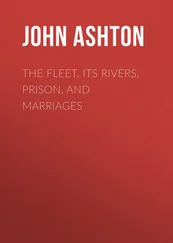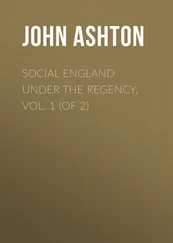John Ashton - Florizel's Folly
Здесь есть возможность читать онлайн «John Ashton - Florizel's Folly» — ознакомительный отрывок электронной книги совершенно бесплатно, а после прочтения отрывка купить полную версию. В некоторых случаях можно слушать аудио, скачать через торрент в формате fb2 и присутствует краткое содержание. Издательство: Иностранный паблик, Жанр: foreign_antique, foreign_prose, на английском языке. Описание произведения, (предисловие) а так же отзывы посетителей доступны на портале библиотеки ЛибКат.
- Название:Florizel's Folly
- Автор:
- Издательство:Иностранный паблик
- Жанр:
- Год:неизвестен
- ISBN:нет данных
- Рейтинг книги:5 / 5. Голосов: 1
-
Избранное:Добавить в избранное
- Отзывы:
-
Ваша оценка:
- 100
- 1
- 2
- 3
- 4
- 5
Florizel's Folly: краткое содержание, описание и аннотация
Предлагаем к чтению аннотацию, описание, краткое содержание или предисловие (зависит от того, что написал сам автор книги «Florizel's Folly»). Если вы не нашли необходимую информацию о книге — напишите в комментариях, мы постараемся отыскать её.
Florizel's Folly — читать онлайн ознакомительный отрывок
Ниже представлен текст книги, разбитый по страницам. Система сохранения места последней прочитанной страницы, позволяет с удобством читать онлайн бесплатно книгу «Florizel's Folly», без необходимости каждый раз заново искать на чём Вы остановились. Поставьте закладку, и сможете в любой момент перейти на страницу, на которой закончили чтение.
Интервал:
Закладка:
This Duke of Cumberland (born 1744, died 1790) was the reverse of estimable in character. He was a confirmed gambler, and never missed a great horse-race when he was in England. In 1770 Lord Grosvenor brought an action against him, and obtained £10,000 damages from him on account of Lady G.; and in 1771 he married Lady Anne Luttrell, the widow of Mr. Christopher Horton, of Derbyshire, a lady much older than himself. This so enraged George III. that he forbade them the Court, and he sent a message to Parliament, recommending a legislative provision for preventing any of the Royal Family marrying without the consent of the King. Hence arose The Royal Marriage Act (12 George III., c. xi.), which was passed in 1772. By this Act none of the descendants of George II., unless of foreign birth, can marry under the age of twenty-five without the consent of the King. At and after that age, after twelve months' notice given to the Privy Council, they may contract such marriage, which shall be good unless both Houses of Parliament disapprove. Walpole gives us a ballad on the Marriage Act, a few verses of which I reproduce:
'The Duke was restored to his brother's high favour,
And continued, as usual, his wanton behaviour;
For adultery at Court was not thought an unfitness,
As a twice married maiden of honour can witness.
'But Hymen, indignant to see his laws broke,
Determined to bend the loose youth to his yoke;
So a votary true, a bright widow, he chose,
And the pert little Prince was soon caught in the noose.
'But, oh! all ye Gods, who inspire ballad-singers,
Ye Muses, with nine-times-ten ivory fingers,
I invoke ye to guide both my voice and my pen,
While I sing of the fury that seized King and Queen.
'King and Queen, when they heard how th'undutiful whelp
Had disgraced the great houses of Mecky and Guelp,
Swore and cried, curs'd and fainted, and calling for Bute,
Of your Luttrell connexion, cried George, see the fruit.
'This Irish alliance my projects all bilks,
I'd as lief he had married the daughter of Wilkes;
While to humour my mother and you I conspire,
I am out of the frying-pan into the fire.
'From the Duke's breach of duty, my act shall receive
The highest-flown doctrines of prerogative;
Plantagenets, Tudors, nay, Stuarts I'll quote,
And what law cannot prove, shall be proved by a vote.
'To marry, unmarry, son, brother, or heir,
Has been always his right, our good King shall declare;
Though as far from the truth as the north from the south,
It is not the first lie we have put in his mouth.
'They may burn and be damn'd, but they never shall marry:
George the Third as despotic, shall be, as Eighth Harry:
He shall cut off the heads of his sons and his spouses,
For we'll have no more war between red and white roses.'
The Duke was ultimately reconciled to the King, but, during the time of his displeasure, the former was a very bad Mentor to the young Prince of Wales, with whom he was most intimate to the day of his death. We learn a great deal about them from Walpole. The following occurred in 1780, when the Prince was eighteen years old: 20 20 'Journal of the Reign of King George the Third, from the Year 1771 to 1783,' by Horace Walpole, London, 1859, vol. ii., p. 416.
'Two days afterwards the Duke told me the Prince of Wales had said to him: "I cannot come to see you now without the King's leave, but in three years I shall be of age, and then I may act for myself. I will declare I will visit you."'
Again 21 21 Ibid. , p. 449.
(1781): 'But an event soon happened that changed that aspect, and made Cumberland House naturally the headquarters of at least part of the Opposition. The Duchess of Cumberland and the Luttrells openly countenanced the amour of the Prince of Wales, and Mrs. Armstead … joined that faction, and set themselves in open defiance of the King.
'The first project was to make a ball for the Prince at Cumberland House; but the King forbad his servants going thither. The Duke then made a great dinner for the Prince's servants, to which, as I have said, the King would not permit them to go. The Duke was so enraged, that he wrote a most insolent letter to the King, in which he told him he would go abroad, for this country was not fit for a gentleman to live in. The Duke, however, went to the Drawing-room again, and continued to go, the Duchess having certainly told him that if he absented himself he would lose his influence over the Prince of Wales.
'To the Queen's ball, as I have said, the Duke was not invited, yet went to Court the next day. At that ball the Prince got drunk, which threw him into a dangerous fever, but such a general irruption over his whole face and body of the humours in his blood came out, that it probably saved his life.
'At this moment the Duke and Duchess of Gloucester came to town from Weymouth. The King, as usual, vented his complaints to the Duke of Gloucester. The King told the Duke that though, on the reconciliation, he had told the Duke of Cumberland that all his doors would be opened to him, "yet," said the King, "he comes to the Queen's house fourteen times a week to my son, the Prince, and passes by my door, but never comes in to me; and, if he meets me there, or when we are hunting, he only pulls off his hat, and walks, or rides away. I am ashamed," continued he, "to see my brother paying court to my son." The King resented it, and, though he invited the principal persons who hunted, to dinner, he never invited the Duke of Cumberland. The Prince of Wales seemed to be very weak and feeble. He drank hard, swore, and passed every night in – : such were the fruits of his being locked up in the palace of piety!
'The King further informed the Duke of Gloucester of his brother Cumberland's outrageous letter, and said, "He has forced himself every day into my son's company, even when he was at the worst." The Duke said he wondered his Majesty had suffered it. "I don't know," replied the King, " I do not care to part relations ."'
' May 4, 1781. 22 22 Walpole, vol. ii., p. 457.
– The conduct of the Prince of Wales began already to make the greatest noise, and proved how very bad his education had been, or, rather, that he had had little or none; but had only been locked up, and suffered to keep company with the lowest domestics; while the Duke of Montague, and Hurd, Bishop of Lichfield, had thought of nothing but paying court to the King and Queen, and her German women. The Prince drank more publicly in the Drawing room, and talked there irreligiously and indecently, in the openest manner (both which were the style of the Duchess of Cumberland). He passed the nights in the lowest debaucheries, at the same time bragging of intrigues with women of quality, whom he named publicly. Both the Prince and the Duke talked of the King in the grossest terms, even in his hearing, as he told the Duke of Gloucester, who asked him why he did not forbid his son seeing his brother. The King replied that he feared the Prince would not obey him.
'The Duke of Cumberland dropped that he meant by this outrageous behaviour to force the King to yield to terms in favour of his Duchess, having gotten entire command over the Prince. The latter, however, had something of the duplicity of his grandfather, Prince Frederick, and, after drawing in persons to abuse the King, would betray them to the King. Nor in other respects did his heart turn to good. In his letters to Mrs. Robinson, his mistress, he called his sister, the Princess Royal, a poor child, " that bandy-legged b – h, my sister ;" and, while he was talking of Lord Chesterfield in the most opprobrious terms, he was sending courier after courier to fetch him to town. That Lord's return produced a scene that divulged all that till now had been only whispered.
Читать дальшеИнтервал:
Закладка:
Похожие книги на «Florizel's Folly»
Представляем Вашему вниманию похожие книги на «Florizel's Folly» списком для выбора. Мы отобрали схожую по названию и смыслу литературу в надежде предоставить читателям больше вариантов отыскать новые, интересные, ещё непрочитанные произведения.
Обсуждение, отзывы о книге «Florizel's Folly» и просто собственные мнения читателей. Оставьте ваши комментарии, напишите, что Вы думаете о произведении, его смысле или главных героях. Укажите что конкретно понравилось, а что нет, и почему Вы так считаете.












